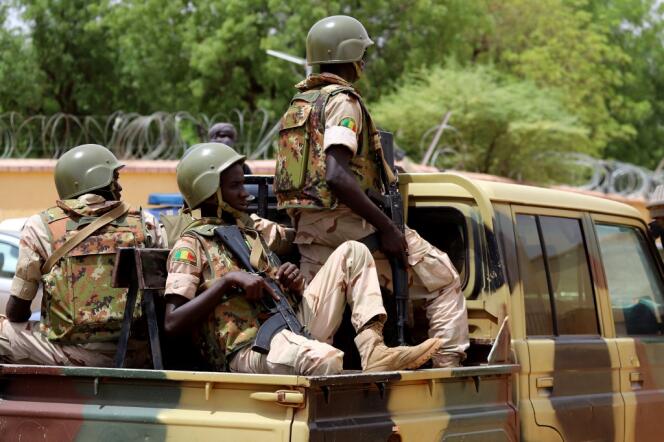


All eyes in Mali are now on the North. While war has not officially been declared between the two parties who signed the Algiers Peace Agreement in 2015, on the ground, the guns have been talking since August. Concern is growing: is the Malian army preparing to attack Kidal this time? This town close to the Algerian border is a symbol, a major sovereignty issue for Bamako: it has been the stronghold of four Tuareg rebellions launched against the state since the end of French colonization in 1960, aiming to proclaim the independence of Azawad, a territory roughly corresponding to northern Mali.
Since Monday, October 2, this desire to regain this territory took the form of a column of over a hundred Malian Armed Forces (FAMA) vehicles. It set off from Gao, in the north-east of the country, on Monday, October 2, and was continuing northward on Wednesday. Groups of former Tuareg and Arab rebels from the CSP-PSD (Cadre Stratégique Pour la Paix, la Sécurité et le Développement, a permanent strategic framework for peace, security and development) were fighting back to prevent the advance of soldiers into this territory they considered to be under their control. Various security and diplomatic sources reported that there were clashes with the FAMA on Wednesday near Tarkint, 200 kilometers south of Kidal.
According to a number of experts on conflicts in the Sahel, before attempting to retake Kidal, the FAMA are looking to retake the Aguelhok and Tessalit bases located to the north of the rebels' former stronghold, which the United Nations Mission in Mali (MINUSMA) is preparing to leave, the UN forces having been ousted by the junta in June.
The Malian military, in power since their coup d'état in August 2020, was no longer hiding its intentions. "The process of irreversible occupation of Malian lands, which is part of Mali's unity, continues and will continue despite the vain opposition of some of its misguided sons. Our valiant army will fight to the last breath to defend the integrity of our beloved homeland, which is one and indivisible," warned FAMA spokesman Colonel Souleymane Dembélé on national television on Tuesday.
Eight years of fragile peace between the former insurgents and the state, characterized on the one hand by respect for a ceasefire established just before the signing of the Algiers Agreement, and on the other, by a lack of concrete progress in implementing key provisions of this deal (such as greater autonomy for the northern regions and the integration of former rebels into a newly reconstituted army), was now collapsing.
You have 68.84% of this article left to read. The rest is for subscribers only.
